#i started reading this recently
Explore tagged Tumblr posts
Text

320 notes
·
View notes
Text

HOT, SINGLE, UNSTUDIED SPONGES. 3000 NAUTICAL MILES AWAY. Come sail the distance and read Tiger Tiger!
#tiger tiger#ludovica bonnaire#remy bonnaire#jamis arlesi#This comic has been on my radar for *years* and I only recently - finally - sat down to read it. And by god is it amazing.#I don't want to spoil anything! But if you like amazing art and character writing *and* high seas adventure? READ TIGER TIGER.#If you asked my who my favourite character is I could not tell you. I truly like them all!!!#I even like the sleezeball who has less charm than a dead rat. He's *my* darling little rat man. With every disease.#A special shout out to my lad (he is the lad of all time) Jamis Arlesi.#Who - upon walking into frame makes me go 'Sir! Is your bosom too heavy? Do you need a new bra? My hands are free on Thursdays!'#And Ludo! My lass! I love her dearly! Every page made me more fond of her.#Book smart and uses it in very good ways! Naive enough to think it is all she needs! Learns a lot and stays kind through the horrors!#I could go on and on but...you...the person reading this...you *are* going to read it - aren't you?#So I'd hate to spoil you any more! Go read Tiger Tiger! Do it! For the sea sponges!#Rumour has it they are also freshly divorced. It was messy. Sea sponge needs a distraction. That could be you. Distracting that sponge.#You wont know until you click that link and start reading!
5K notes
·
View notes
Text
One of my favorite choices the Apothecary Diaries made was making the Emperor a “normal guy” (as far as I know as an anime-only). He’s not evil. He’s not hindering Mao Mao’s journey. He respects the concubines.
If anything his lack of autonomy and presence as the most powerful person in the country further enhances the show’s themes of working within the confines of class and gender inequality.
The previous emperor was a horrible, horrible pervert. Okay, then this emperor only weds women of age… Until he’s forced to take his father’s precious wife due to politics. The current emperor reasonably avoids her.
Eunuchs exist? Bam! now the surgery is outlawed, but this will create a reduction in male labor around the palace.
The emperor clearly favors few women. Well, now he must recognize a concubine with a powerful politician father playing the system.
He supports Mao Mao toeing the line of social expectations for women, but hasn’t removed the law against women preparing medicine. It makes one think, if he wanted to, could he make the change at all? For every two steps forward, he’s forced to take one step back.
In this universe even the Emperor is limited by social pressure and the expectations of his station. His life and that of his children is out of his control, and if that isn’t such a compelling piece of world building I don’t know what is.
If that’s how the author twists the narrative of the Emperor you better believe her female characters dealing with women’s issues in this society are even better written.
#you should all watch the apothecary diaries#I’m all caught up and starting the manga#never read a manga before#and despite knowing what’s going to happen in a MYSTERY I’m still locked in#guys it’s so good#I can’t wait to finish the manga and then jump into the light novels and read it all AGAIN#the apothecary diaries#kusuriya no hitorigoto#and if I’m wrong about the emperor please don’t tell me#no spoilers please#though this has spoilers up to the most recent episode#maomao#tagging the queen because she’s mentioned#these characters!!!!#wrote this instead of my discussion post for class🤪
327 notes
·
View notes
Text

boop! 💙🤍
#drawing this reset me as a person my my crops are watered and my skin is clear#this is the most wholesome thing ive ever made in my entire life#based on the one panel from the mlp comic where theres sonilver hedgehogs in the background being absolutely adorable#i made. the lineart so cute and i was so worried about the rendering but im actually. pleased with it.#thank u silver your cuteness made my self criticism leave for a while....#this didnt even start out as really ship art but god they are so cute. what the hell. i need to go look at sonilver art.#i love silver...hes such a good guy#i recently read gotf and my love for him has grown tenfold (you can also probably see the inspiration in my colouring)#i am making a gotf fanart soon!!! i have a little sketch cooked up#it is sonadow as expected of course#anyways!! here are the two best boys for you#sonic the hedgehog#silver the hedgehog#sonilver#my art
776 notes
·
View notes
Text
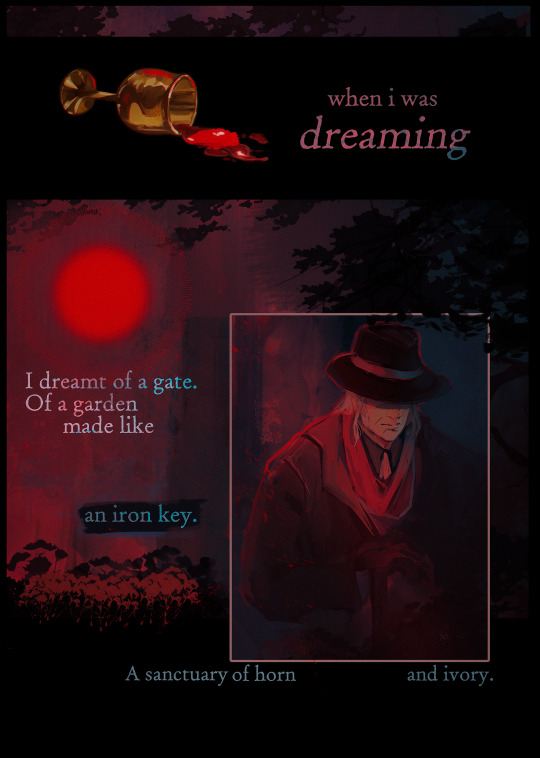
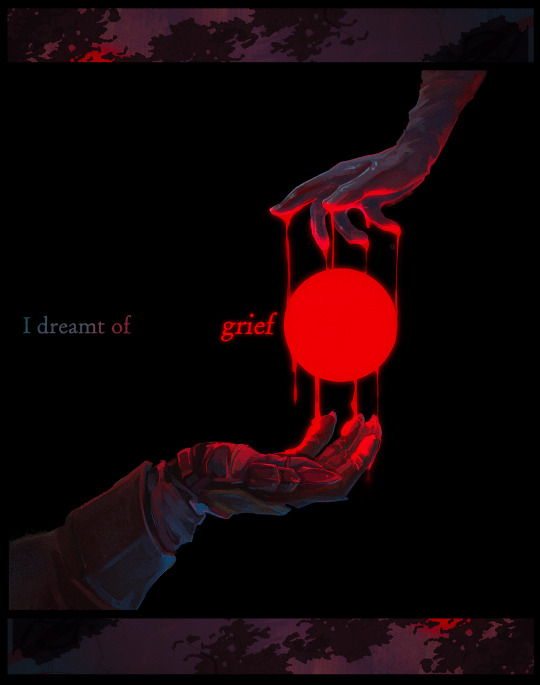
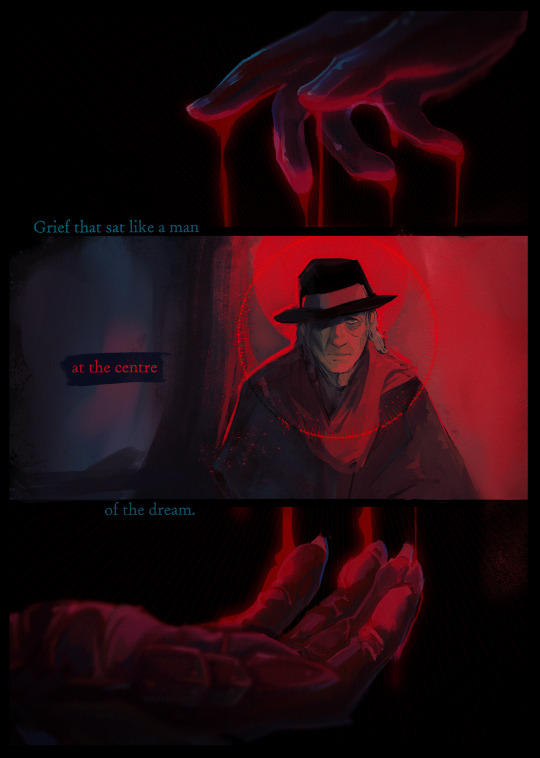
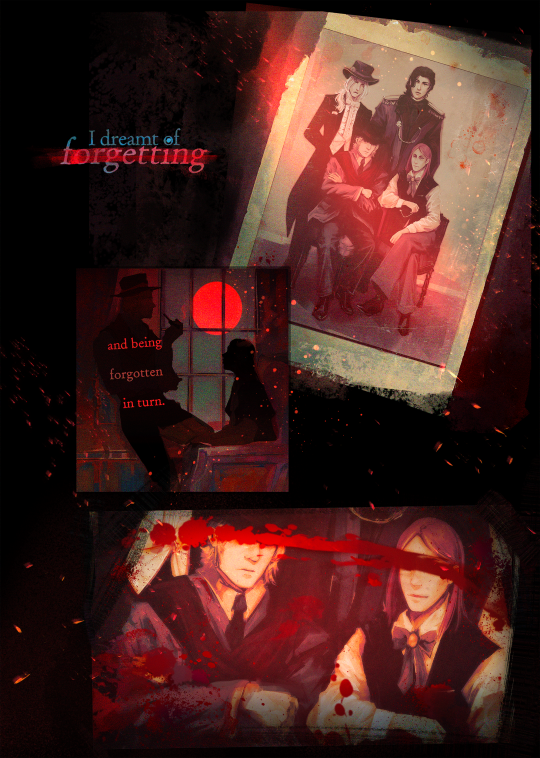
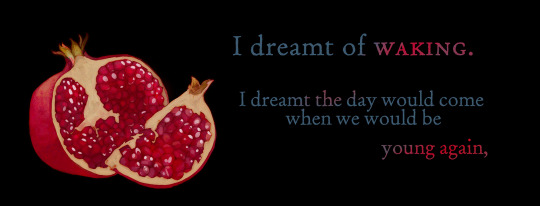
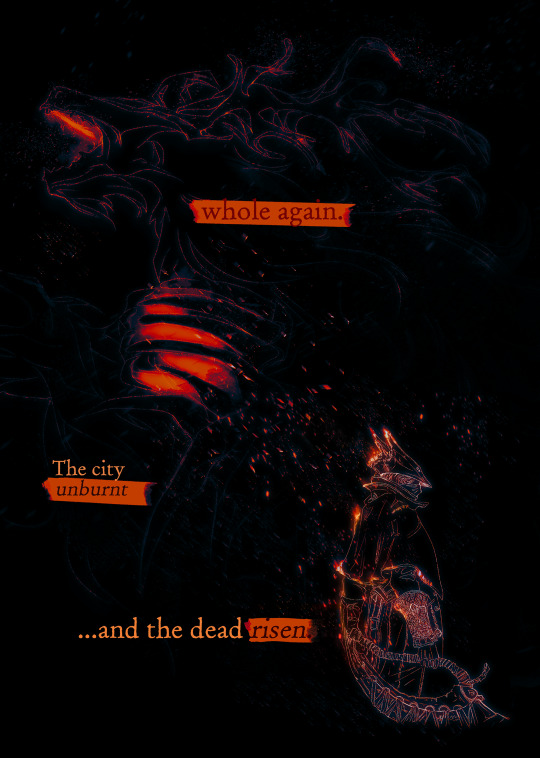
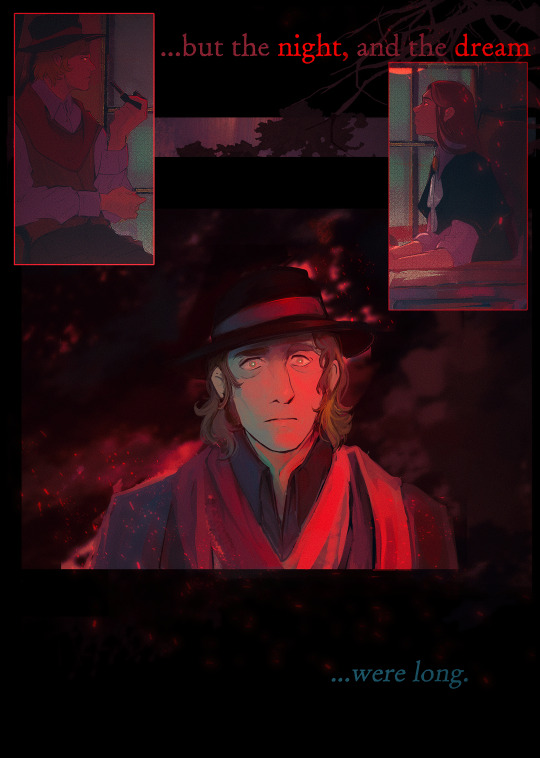
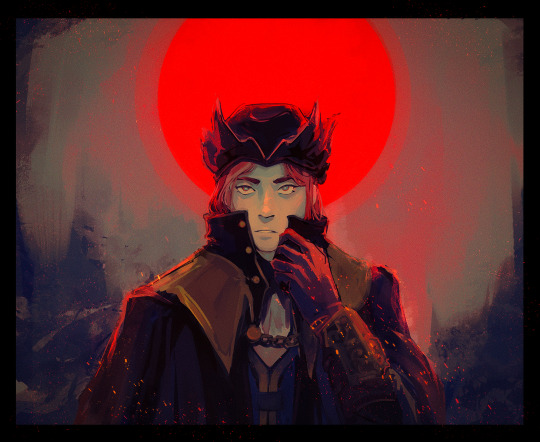
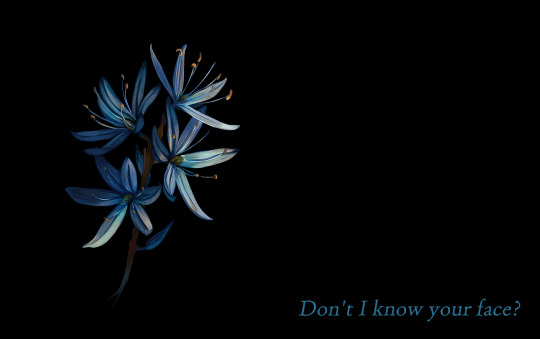
not actually part of my personal headcanon but i like to rotisserie the concept in my brain from time to time
#bloodborne#txt from my most recent fic#moon divorce people come get more juice#idk ive read the theoretical proposition of this scenario and it tickles me on occasion#this started as three sketches and then idk#I have zero experience making comics and I dont know how y'all do it because I dont have the patience#bloodborne fanart#gehrman the first hunter#laurence the first vicar
918 notes
·
View notes
Text





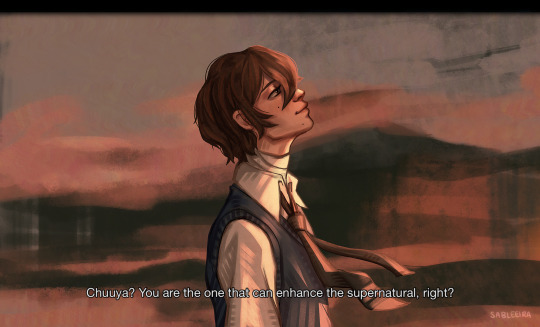
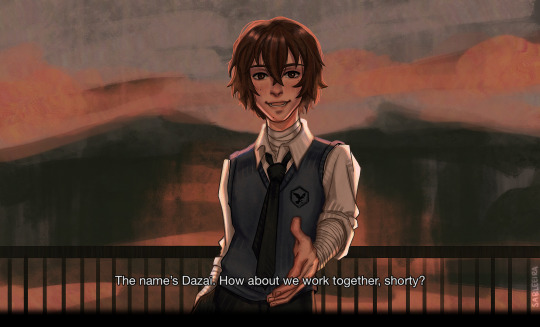
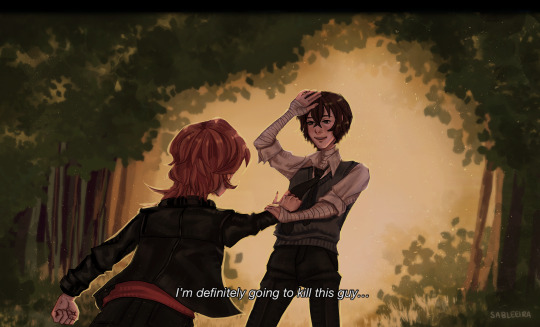
this skk trc au is probably my most self indulgent artwork to date. If this sounds confusing, random, and very niche. It is! You can check out this post for more info on what the hell this au is about (I fear it’s not getting less confusing tho!) or you can read The Raven Cycle 👍
#bungou stray dogs#bsd#soukoku#skk#bsd fanart#bsd dazai#osamu dazai#bsd chuuya#chuuya nakahara#I started this in December but I haven’t touched it in months (until I started working through my wips recently)#it shoved me back into the trc trenches and I took a break from drawing to read the first book again. now that it’s finally finished I’m#gonna read the rest 🥰 also my gf finally started trc 🫶 now I can finally talk to them about Oda = Noah in this au#guess which of these panels were drawn in December (3 finished and lineart for one) and which ones I drew recently
548 notes
·
View notes
Text

I do think that they’d hate each other.
#digital art#artists on tumblr#art#fanart#the umbrella academy#five hargreeves#tua fanart#tua#rip number five#artemis fowl#artemis#ireland#IRELAND FOREVER#who would win#my money is on pre nerf five#I just recently started reading artemis fowl again for the first time since fourth grade#absolutely fire#evil child prodigy
267 notes
·
View notes
Text
patience being tested. being forced by a bizarre unfortunate situation to adhere to university requirement technicality by taking this simple basic elementary "introduction to environmental history" class.
this class is from facilitators/program which do, like, "history of the American frontier" or "history of fishing and hunting" and still basically subscribe to that old-school twentieth-century idealization and celebration of characters like Teddy Roosevelt and reverence for a mythical arc-of-history-bent-towards-justice narrative of the often-clumsy but ultimately-benevolent US federal government and its mission to "save nature" through the miracle of "sustained yield," while heroic federal land management agencies and "heritage" institutions lead to way, staffed by exceptional individuals (appeals to nostalgia for the frontier and an imagined landscape of the American West; ego-stroking appeals to flattering self-image that center the environmentalist or academic). where they invoke, y'know, ideas like "ecology is important because don't you enjoy cross-country skiing in The Woods with your niece and nephew? don't you like hunting and fishing?" which makes it feel like a time capsule of appeals and discourses from the 1970s. and it invokes concept of "untouched wilderness" (while eliding scale of historical Indigenous environmental relationships and current ongoing colonial violence/extractivism). but just ever-so-slightly updated with a little bit of chic twenty-first-century flair like a superficial land acknowledgement or a reference to "labor histories" or "history from below," which is extra aggravating when the old ideologies/institutions are still in power but they're muddying the water and diluting the language/frameworks (it's been strange, watching words like "multispecies" and "Anthropocene" over the years slowly but surely show-up on the posters, fliers, course descriptions, by now even appearing adjacent to the agri-business and resource extraction feeder programs, like a recuperation or appropriation.) even from a humanities angle, it's still, they're talking at me like "You probably didn't know this, but environmental history is actually pretty entangled with political and social events. In fact, we can synthesize sources and glean environmental info from wacky places like workers' rolls in factories, ship's logs, and poetry from the era." and i'm nodding like YEP.
the first homework assignment is respond to this: "Define and describe 'the Anthropocene'. Do you think 'the Anthropocene' is a useful concept? Why or why not?" Respond in 300 words.
so for fun, right now in class, going to see how fast i can pull up discussion of Anthropocene-as-concept solely from my old posts on this microblogging site.
---
ok, found some
---
I think that the danger in any universal narrative or epoch or principle is exactly that it can itself become a colonizing force. [...] I’m suspicious of the Anthropocene as concept for the very reason that it subsumes so many peoples, nations, histories, geographies, political orders. For that reason, I think ideas like the Anthropocene can be a useful short-hand for a cluster of tangible things going on with the Earth at the moment, but we have to be very careful about how fluid and dynamic ideas become concretized into hegemonic principles in the hands of researchers, policymakers, and politicians. There’s so much diversity in histories and experiences and environmental realities even between relatively linked geographies here in Canada [...]. Imagine what happens when we try to do that on a global scale - and a lot of euro-western Anthropocene, climate change and resilience research risks doing that - eliding local specificities and appropriating knowledge to serve a broader euro-western narrative without attending to the inherent colonial and imperial realities of science and policy processes, or even attending to the ways that colonial capitalist expansion has created these environmental crises to begin with. While we, as a collective humanity, are struggling with the realities of the Anthropocene, it is dangerous to erase the specific histories, power-relations, political orders that created the crisis to begin with. So, I’m glad that a robust critique of the Anthropocene as a concept is emerging.
Text by: Words of Zoe Todd, as interviewed and transcribed by Caroline Picard. “The Future is Elastic (But it Depends): An Interview with Zoe Todd.” 23 August 2016.
---
---
---
The Great Acceleration is the latest in a series of human-driven planetary changes that constitute what a rising chorus of scientists, social scientists, and humanists have labeled the Anthropocene - a new Age of Humans. [...] But what the Anthropocene label masks, and what the litany of graphs documenting the Great Acceleration hide, is a history of racial oppression and violence, along with wealth inequality, that has built and sustained engines of economic growth and consumption over the last four centuries. [...] The plantation, Sidney Mintz long ago observed, was a “synthesis of field and factory,” an agro-industrial system of enterprise [...]. Plantation legacies, along with accompanying strategies of survival and resistance, dwell in the racialized geographies of the United States’ and Brazil’s prison systems. They surface in the inequitable toxic burdens experienced by impoverished communities of color in places like Cancer Alley, an industrial corridor of petrochemical plants running along the Mississippi River from New Orleans to Baton Rouge, where cotton was once king. And they appear in patterns of foreign direct investment and debt servitude that structure many land deals in the Caribbean, Brazil, and sub-Saharan Africa [...]. [C]limatologists and global change scientists from the University of London, propose instead 1610 as a date for the golden spike of the Anthropocene. The date marked a detectable global dip in carbon dioxide concentrations, precipitated, they argue, by the death of nearly 50 million indigenous human inhabitants [...]. The degradation of soils in the tobacco and cotton-growing regions in the American South, or in the sugarcane growing fields of many Caribbean islands, for example, was a consequence of an economic and social system that inflicted violence upon the land and the people enslaved to work it. Such violent histories are not so readily evident in genealogies that date the Anthropocene’s emergence to the Neolithic Revolution 12,000 years ago, the onset of Europe’s industrial revolution circa 1800, or the Trinity nuclear test of 1945. Sugarcane plantations were already prevalent throughout the Mediterranean basin during the late middle ages. But it was during the early modern era, and specifically in the Caribbean, where the intersection of emerging proto-capitalist economic models based on migratory forced labor (first indentured servitude, and later slavery), intensive land usage, globalized commerce, and colonial regimes sustained on the basis of relentless racialized violence, gave rise to the transformative models of plantations that reshaped the lives and livelihoods of human and non-human beings on a planetary scale. [...] We might, following the lead of science studies scholar Donna Haraway and anthropologist Anna Tsing, more aptly designate this era the Plantationocene. [...] It is also an invitation to see, in the words of geographer Laura Pulido, “the Anthropocene as a racial process,” one that has and will continue to produce “racially uneven vulnerability and death." [...] And how have such material transformations sustained global flows of knowledge and capital that continue to reproduce the plantation in enduring ways?
Text by: Sophie Sapp Moore, Monique Allewaert, Pablo F. Gomez, and Gregg Mitman. "Plantation Legacies." Edge Effects. 22 January 2019. Updated 15 May 2021. [Bold emphasis added by me.]
---
---
---
Geologists and other scientists will fight over [the definition of the beginning start-date of the Anthropocene] in scientific language, seeking traces of carbon dioxide that index the worst offenses of European empire which rent and violated the flesh, bodies, and governance structures of Indigenous and other sovereign peoples in the name of gold, lumber, trade, land, and power. [...] The stories we tell about the origins of the Anthropocene implicate how we understand the relations we have with our surrounds. In other words, the naming of the Anthropocene epoch and its start date have implications not just for how we understand the world, but this understanding will have material consequences, consequences that affect body and land.
Text by: Heather Davis and Zoe Todd. On the Importance of a Date, or Decolonizing the Anthropocene. ACME An International Journal for Critical Geographies. December 2017. [Bold emphasis added by me.]
---
---
---
From Aime and Suzanne Cesaire, C. L. R. James, Claudia Jones, Eduoard Glissant, through Sylvia Wynter, Christina Sharpe, and so many others, critical anticolonial and race theory has been written from the specific histories that marked the Black Atlantic. [...] Glissant also reminds us, secondly, of how cunning the absorptive powers of [...] liberal capitalism are - how quickly specific relations are remade as relations-erasing universal abstractions. [...] This absorptive, relations-erasing universalism is especially apparent in some contemporary discourses of […] liberalism and climate collapse - what some call the Anthropocene - especially those that anchor the crisis in a general Human calamity which, as Sylvia Wynter has noted, is merely the name of an overdetermined and specific [White] European man. […] [T]he condition of creating this new common European world was the destruction of a multitude of existing black and brown worlds. The tsunami of colonialism was not seen as affecting humanity, but [...] these specific people. They were specific - what happened to them may have been necessary, regrettable, intentional, accidental - but it is always them. It is only when these ancestral histories became present for some, for those who had long benefitted from the dispossession [...], that suddenly the problem is all of us, as human catastrophe.
Text by: Elizabeth Povinelli. “The Ancestral Present of Oceanic Illusions: Connected and Differentiated in Late Toxic Liberalism.” e-flux Journal Issue #112. October 2020.
---
The narrative arc [of White "liberal humanism"] [...] is often told as a kind of European coming-of-age story. […] The Anthropocene discourse follows the same coming-of-age [...] script, searching for a material origin story that would explain the newly identified trajectory of the Anthropos […]. Sylvia Wynter, W.E.B. DuBois, and Achille Mbembe all showed how that genealogy of [White subjecthood] was [...] articulated through sixteenth- through nineteenth-century [historiographies and discourses] in the context of colonialism, [...] as well as forming the material praxis of their rearrangement (through mining, ecological rearrangements and extractions, and forms of geologic displacements such as plantations, dams, fertilizers, crops, and introduction of “alien” animals). […] As Wynter (2000) commented, “The degradation of concrete humans, that was/is the price of empire, of the kind of [Eurocentric epistemology] that underlies it” (154).
Text by: Kathryn Yusoff. “The Inhumanities.” Annals of the American Association of Geographers, Volume 11, Issue 3. November 2020.
---
---
---
As Yarimar Bonilla suggests in regard to post-Irma-and-Maria Puerto Rico, “vulnerability is not simply a product of natural conditions; it is a political state and a colonial condition.” Many in the Caribbean therefore speak about the coloniality of disaster, and the unnaturalness of these “natural” disasters [...]. Others describe this temporality by shifting [...] toward an idea of the Plantationocene [...]. As Moore and her colleagues write, “Plantation worlds, both past and present, offer a powerful reminder that environmental problems cannot be decoupled from histories of colonialism, capitalism, and racism that have made some human beings more vulnerable [...].” [W]e see that contemporary uneven socioecologies associated with the rise of the industrial world ["the Anthropocene"] are based [...] also on the racialized denial and foreshortening of life for the sacrificial majority of black, brown, and Indigenous people and their relegation to the “sacrifice zones” of extractive industry. [...] [A]ny appropriate response to the contemporary climate emergency must first appreciate its foundations in the past history of the violent, coercive, transatlantic system of plantation slavery; in the present global uneven development, antiblackness, and border regimes that shape human vulnerability [...] that continues to influence who has access to resources, safety, and preferable ecologies [...] and who will be relegated to the “plantation archipelagoes” (as Sylvia Wynter called them) [...].
Text by: Mimi Sheller. “Thinking Beyond Coloniality: Toward Radical Caribbean Futures.” Small Axe (2021), 25 (2 (65)), pages 169-170. Published 1 July 2021. [Bold emphasis added by me.]
---
---
---
Indigenous genocide and removal from land and enslavement are prerequisites for power becoming operationalized in premodernity [...]; it was/is a means to operationalize extraction (therefore race should be considered as foundational rather than as periphery to the production of those structures and of global space). [...] Wynter suggests that we […] consider 1452 as the beginning of the New World, as African slaves are put to work on the first plantations on the Portuguese island of Madeira, initiating the “sugar-slave” complex - a massive replantation of ecologies and forced relocation of people […]. Wynter argues that the invention of the figure of Man in 1492 as the Portuguese [and Spanish] travel to the Americas instigates at the same time “a refiguring of humanness” in the idea of race. [...] The natal moment of the 1800 Industrial Revolution, […] [apparently] locates Anthropocene origination in […] the "new" metabolisms of technology and matter enabled by the combination of fossil fuels, new engines, and the world as market. […] The racialization of epistemologies of life and nonlife is important to note here […]. While [this industrialization in the nineteenth century] […] undoubtedly transformed the atmosphere with […] coal, the creation of another kind of weather had already established its salient forms in the mine and on the plantation. Paying attention to the prehistory of capital and its bodily labor, both within coal cultures and on plantations that literally put “sugar in the bowl” (as Nina Simone sings) […]. The new modes of material accumulation and production in the Industrial Revolution are relational to and dependent on their preproductive forms in slavery […]. In 1833, Parliament finally abolished slavery in the British Caribbean, and the taxpayer payout of £20 million in “compensation” [paid by the government to slave owners for their lost "property"] built the material, geophysical (railways, mines, factories), and imperial infrastructures of Britain and its colonial enterprises and empire. [...] A significant proportion of funds were invested in the railway system connecting London and Birmingham (home of cotton production and […] manufacturing for plantations), Cambridge and Oxford, and Wales and the Midlands (for coal). Insurance companies flourished [...]. The slave-sugar-coal nexus both substantially enriched Britain and made it possible for it to transition into a colonial industrialized power […]. The slave trade […] fashioned the economic conditions (and institutions, such as the insurance and finance industries) for industrialization.
Text by: Kathryn Yusoff. "White Utopia/Black Inferno: Life on a Geologic Spike". e-flux Journal Issue #97. February 2019. [Bold emphasis added by me.]
#sorry for being mean#instructor makes podcasts about cowboys HELP ME#and he recently won a New Business award for his startup magazine covering Democrat party politics in local area HELP#so hes constantly performing this like dance between new hip beerfest winebar coolness and oldfashioned masculinity#but hes in charge of the certificate program so i have to just shut up and keep my head down for approximately one year#his email address is almost identical to mine and invokes enviro history terms but i made mine long before when i was ten years old#so i could log in to fieldherpforum dot com to talk about enviro history of distribution range changes in local reptiles and amphibians#sir if you read my blog then i apologize ive had a long year#and i cant do anything to escape i am disabled i am constantly sick im working fulltime i have NO family i have NO resources#i took all of this schools graduate level enviro history courses and seminars years ago and ran the geography and enviro hist club#but then left in final semester because sudden hospitalization and crippled and disabled which led to homelessness#which means that as far as any profession or school is concerned im nobody im a retail employee#i was doing conference paper revisions while sleeping on concrete vomiting walking around on my cane to find outdoor wifi#and im not kidding the MONTH i got back into a house and was like ok going back to finish the semester the school had#put my whole degree program and department in moratorium from lack of funding#and so required starting some stuff from scratch and now feel like a hostage with debt or worsening health that could pounce any moment#to even get back in current program i was working sixteen hours a day to pay old library fines and had to delicately back out of workplace#where manager was straight up violently physically abusive to her vulnerable employees and threatened retaliation#like an emotional torturer the likes of which i thought existed only in cartoons#and the week i filed for student aid a massive storm had knocked out electricity for days and i was clearing fallen tree debris#and then sitting in the dark in my room between job shifts no music no phone no food with my fingers crossed and i consider it a miracle#sorry dont mean to dramatize or draw attention to myself#so actually im happy you and i are alive
134 notes
·
View notes
Text
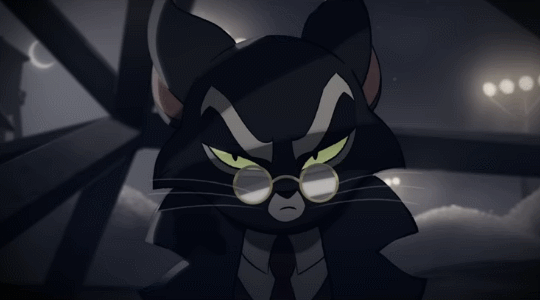
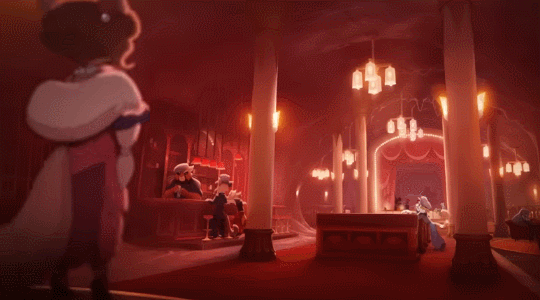

Lackadaisy Enrichment
#in our enclosures!!#video linked as source; which i'm glad to see already has a million views and is trending. That's Right#lackadaisy#WHICH i have been reading since at least '07 when i was thirteen my god b/c this animation is based on the ongoing webcomic#like does its influence show up Directly in some Discrete way i can point to in my art? not very easily probably. And Yet.#the inspiration....i wasn't able to be Regularly Only for at least another year / art done Nonprofessionally Online was novel to me#like wow ppl can make & post fanart of w/e they love huh....didn't know webcomics were a thing & i never really read that many since but.#good god the quality of Lackadaisy at its onset is like this is superb?? this person putting in all their talent and effort???#and Then you get years & years more art and i don't even know what superlatives to throw out abt its quality as it evolves. obsessed w/it..#if i see a new lackadaisy comic page i Will be acting out. obviously this animation is a delight & also stunning. and fascinating to also#juxtapose as a Translation / Interpretation of the comic in a different medium & standalone snippet of Story#and that we're not even quite there in the comic timeline; Taking Notes abt character info we get distilledly here....genuinely love like#take it back to '07 i'm like oh boy can't wait for the dream team to assemble. then a decade later when it did? Oh Boy. that is payoff lol#namely hooray for stitches and mudbug at the field office for every passing gangster. killing one marigold associate but not the other#which seems like a promising start to shootouts w/the other dream team triumvirate. i adore that in canon so far mordecai freckle & rocky#have met but only over a nice brunch. re: all intentions anyways. anyways i'm like Gifs Must Be Made while i'm also so riled afresh abt the#comic that i've been sooo hype for for over fifteen yrs now babeyyy Deservedly. i've done a couple of rereads & ought to do another....#For Interest it'd probably take a few sittings to catch up from the start but there is much to be engaged over....this ongoing story that's#historical fiction prohibition bootlegging cats with plenty of focus on characters & several Mysteries. which i'm better at parsing now lol#like one of the more recent rereads like Oh Of Course x (probably) accidentally killed his y & z took the fall & that's a binding secret...#Not [oh of course] abt the circumstances surrounding a's death & how b & c were involved. nor the ''what's marigold's damage'' mystery#which is great. love to not know things. love that we can readily follow all the emergent drama everyone's wading in nowadays. hell yeah#anyways admire my organized approach to gifs here. four shots each Expressions Atmosphere Action Groupshots#sure might've muddled through gifmaking for this anyways but fr being a huge lackadaisy comic enjoyer for now most of my life helps#and its very Overall Inspiration like. just really getting the [you can really just draw stuff out here] going. fr the art's detail & skill#and that enrichment like i'm gonna have a great time following this. And I Have#you don't expect a crowdfunded indie animation in the mix back then but hell yeah fellas#SIGH ok removing a 4th gif that's broken / not displayed despite reuploading then entirely remaking it. if it's a bug i'll try again later
4K notes
·
View notes
Note
age swap mogami? the most wettest cat kid ever

hello chara undertale

He just never had any positive adult influences in his life because he was a child star and was “always watched but never seen” (I’m quoting an ageswap fic called “A Good Person” by qrovers, please read it omg it’s so good 😭)

Oh and then bonus is this one I drew yesterday (before I got this ask) based on a goofy stock photo
The inconsistency here is that Mogami wouldn’t be alive 😭
#doctorsiren#mob psycho 100#keiji mogami#shigeo kageyama#reigen arataka#mp100 fanart#mp100 ageswap#digital art#my art#procreate#doodle requests#I’m thinking like uh uh uh Found from Steven Universe the Movie#and Mob would see the similarities between Mogami and himself (as a child and now). as well as reigen#fun fact uh the only two mp100 fics I’ve ever read were A Breach of Trust (back in 2017 when I think it first started coming out)#and more recently A Good Person (which I read a couple months ago)#I don’t really read fanfiction but there are some rare exceptions
293 notes
·
View notes
Text
suggestive monster stuff under the cut


i havent posted art in almost a year and this is what i decide to break the ice with hi
go big or go home amirite
#as u can see#ive been very busy#every day i stray further from gods light#there is no god#there is no light#so i recently read a soul to keep which then inspired me to read ancient magus bride#and i realized i love wolf skull shaped boyfriends 🤷♀️#it is what it is#these guys are my own characters bc i got so inspired that i started writing a thing#then i got inspired to draw a thing#and here we are#uh what do i tag this#lucilla#tenebrarius#he looks scary but hes a sweetheart#i promise#he eats the occasional human (in the food way) but thats not his fault#everyone has flaws#and lucilla has big ears and i wanna squeeze em#monster fucker#teratophillia#terato#monster x human#tags be wild#my art
795 notes
·
View notes
Text

#recently started reading this and i absolutely adore the main couple#스케치#sketch#sketch manhwa#bl manhwa#bl webtoon#yaoi#bl manga#yaoi recommendation#bl recommendation#yaoi bl#manga panel#fudanshi#fujoshi#yikyung#joobin#yaoi smut#yaoi couple#bl couple#manga yaoi#yaoi love#yaoi manhwa#yaoi boys
326 notes
·
View notes
Text


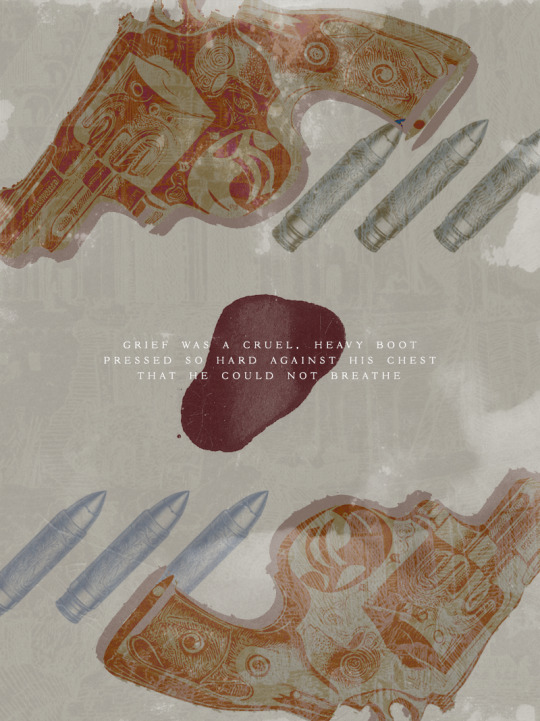

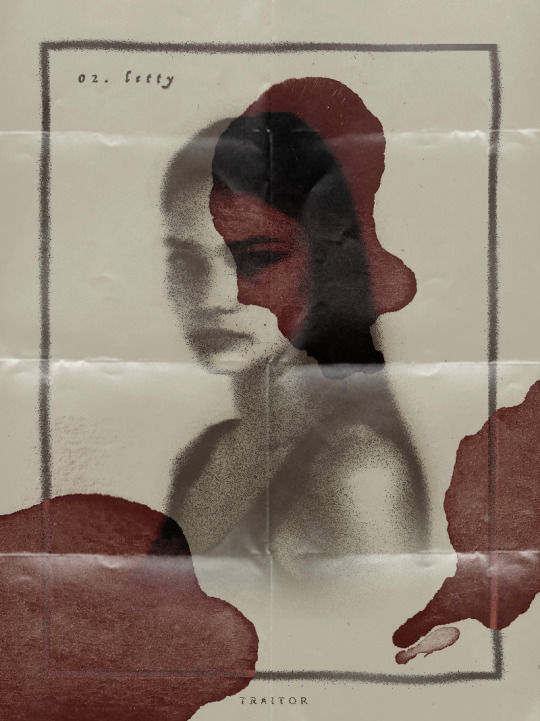
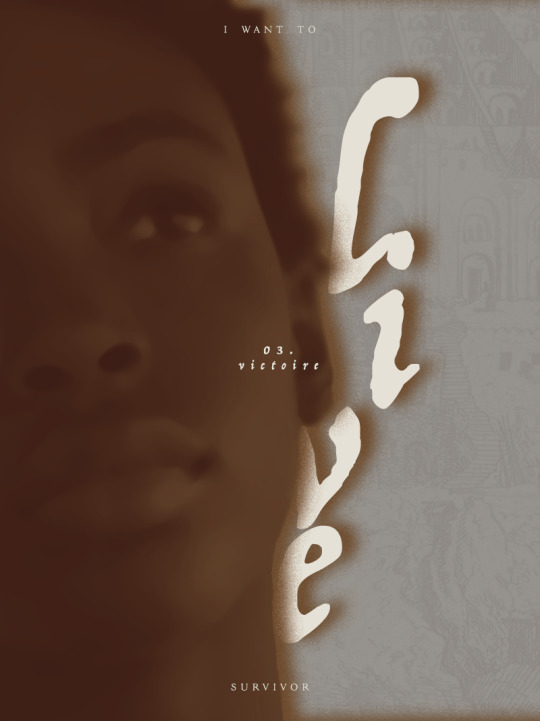
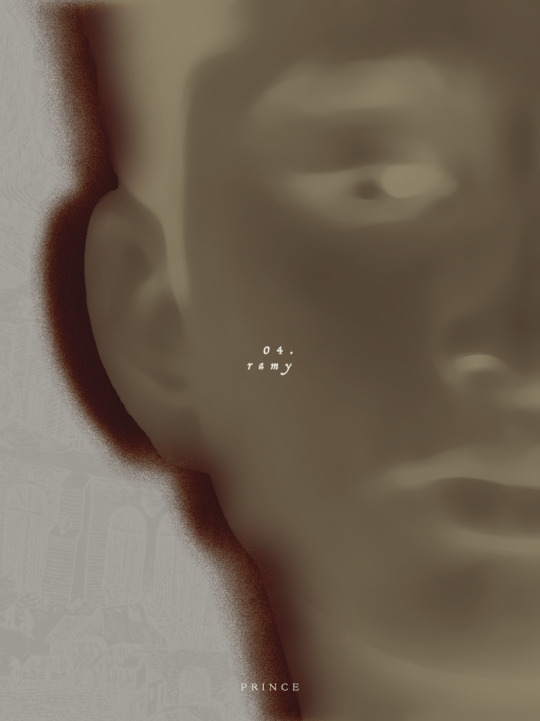
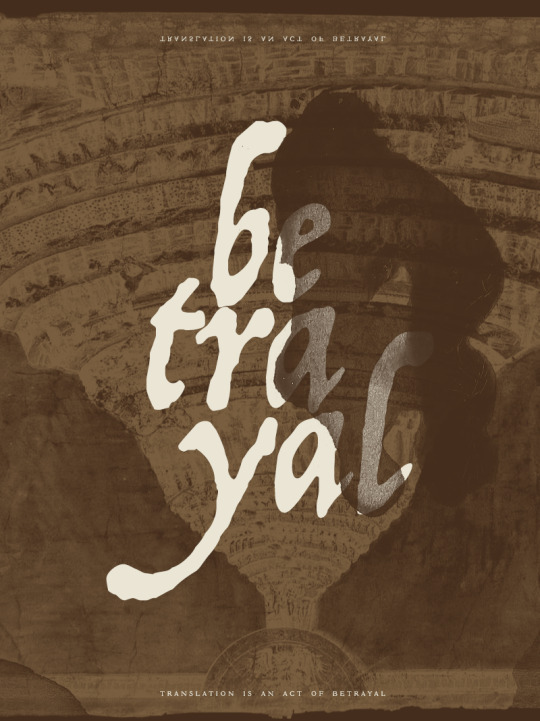
babel, or the necessity of violence by r. f. kuang
HISTORY isn't a premade tapestry that we've got to suffer, a closed world with no exit. We can form it. Make it. We just have to choose to make it.
the tower of babel / dante's inferno
#*#fav books#books#babel#bookedit#babel rf kuang#babeledit#litofcolor#litedit#booksociety#usersabrina#userdanisaur#i read this recently bc a friend lent me the book and it was awesome!#i'm starting a fav books meme for myself so i can inspire myself to edit more too! :)
239 notes
·
View notes
Text



카이린 낙서 😇🏴☠️
#maplestory art in 2024 ? its more likely than you think#i stalk the 코메 tag on twitter from time to time and found one of my long lost mutuals#im so happy to be drawing this again.. also i recently found all the volumes so im literally so ready to read it all from the start#코믹 메이플스토리#comic maplestory
197 notes
·
View notes
Text
can we — as a society — PLEASE PLEASE PLEASE PLEASE PLEASE PLEASE PLEASE PLEASE PLEASE PLEASE PLEASE PLEASE PLEASE PLEASE PLEASE PLEASE PLEASE PLEASE PLEASE PLEASE PLEASE PLEASE PLEASE PLEASE PLEASE PLEASE PLEASE PLEASE PLEASE PLEASE PLEASE PLEASE PLEASE PLEASE PLEASE PLEASE PLEASE PLEASE PLEASE PLEASE PLEASE PLEASE PLEASE PLEASE PLEASE PLEASE PLEASE PLEASE PLEASE PLEASE PLEASE PLEASE PLEASE PLEASE PLEASE PLEASE PLEASE PLEASE PLEASE PLEASE move on from fantasy/historical (retelling)/seinen/dark/mature/queer love story/bl/gl whatever that has explicit SA or rape scenes. PLEASE FOR THE LOVE OF EVERY FANTASY DONE GOOD WITH SUBTLE TELLING/SHOWING, YOUR READERS/VIEWERS DON’T HAVE TO SEE ALL OF THAT GOD FUCKING DAMMIT
#nobu.nobu.chat#recently started reading ‘ennead’ bc of pretty seth and anubis#the incest/stepcest/whatever tf they have going on in the family tree — i fucking gave up#and started to imagine myself as horus instead#but god#do we need pages upon pages upon pages upon chapters of unnecessary rape or sa scenes?#‘oh but its his punishment!’ ‘its the driving part of the plot’#then is ur story good?#if sa or rape is the driving point then is it a good story?#what abt healing? loving? learning? different forms of punishment? or even subtle text/showing/speaking#good god i am so done with people
105 notes
·
View notes
Text
denji's progression is backwards, not in the sense he's unlearning his development but literally regressing to the womb. early part 2 was his crowning moment, displayment of an autonomous person living his life ahead, moving foward in a clear road alongside his new family, a girlfriend, graduating and a job are his goals ahead. as the story progresses external forces make denji start doubting his place in his world and bluring his boundaries, so things like SA start happening again, and other people are to decide how denji must live. this is followed by the textual destruction of his complete identity, csm, denji and a man, toyed around as an idol and bringed back by external forces once again. but denji comes back to the past figuratelly, put into his childhood clothes and a yakuza (his ex-boss' grandson) is there to torture him like old times. the epitome of the progression once existed, after everything denji went through in part 1, was nayuta's birth, result of the transmutation of his pain and failure as an idol/son/lover to this newborn daughter/sibling. but story repeats itself, his family gets killed and the new control devil is eaten, everything comes back to zero. denji wasn't capable of fulfilling his part of the contract, so pochita takes control over his body and fights to keep him alive. denji right now is dead, pochita is the womb carrying the corpse, death and birth.
unfortunerally for this part, power came back to save denji and their friendship inspired him keep on living, but i can't see an equivalent of her role in the story right now. Denji has never been this lonely in his life, so i'm expectant of how things will go from here.
#predictable asa will do smth but it doesn't strike me right in this moment of the story. her mixed signals and recent accident+#lower her a lot in denji's head. asa is no way equivalent of what power was. so i hope we shift pov to her and start making things work#make her like.. snap from fami's brainwash is a good start#chainsaw man#csm spoilers#reading#i hold hopes for yoshida to reappear and for asa i just want her back
236 notes
·
View notes